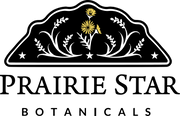Stress - We all encounter it
Stress
/stres/
noun
- pressure or tension exerted on a material object.
- a state of mental or emotional strain or tension resulting from adverse or very demanding circumstances.

We do not need to be asking “What is stress?”, what we need to ask is “How do we react to stress?”. When put under pressure, slapped in the face by something sudden, stuck in between a rock and a hard place, how do you react to the situation? Arguably, one can react to each unique situation differently, but generally, we all have our fallback reaction to stressful situations.
Do you have circling thoughts with a worried mind, upset digestion, and tension in the stomach? Do you flit right to rage, anger, or frustration? Do you shut down, becoming quiet and subdued? Do you become fearful of the unknown and the possibilities that could come? Do you start shouting or panicking with a hurried demeanor and look like a cat that licked a light socket?
- OR -
Do you go to comforting the closest person affected by the stress? Do you look for an alternate perspective or a creative solution towards the situation? Do you analyze the situation and seek the best method for resolving the conflict? Do you learn to go with the flow, understanding everything that needs to happen, will happen? Do you crack jokes towards the situation or try to lighten the mood, bring the life back to the party?

I have been exposed to multiple healing practices; Traditional Chinese Medicine (TCM), Ayurveda, European practices, and Native American methods of healing the mind and body. For me personally, TCM has helped me to make the most sense out of this world – it helps to explain the different personalities that I encounter and the numerous possible imbalances within the body. The different possible reactions to stress (listed above) are associated with the different elements (or personalities) of TCM.
The TCM structure has 5 different elements of the body: Earth, Wood, Metal, Water, and Fire. Each element is associated with different organs or organ systems:
- Earth – Stomach, Spleen, Pancreas, Lymphatic/Immune system
- Wood – Liver, Gallbladder, Joint Health
- Metal – Lungs, Large Intestine, Skin health
- Water – Kidneys, Adrenals, Bladder, Reproductive system
- Fire – Heart, Small Intestine, Mental health
Generally, a person will lean towards 1 or 2 elements as their strongest components that make up their constitution. I use the term “constitution” in reference to their overall or long-term health; for example – a person’s personality or perspective towards the world, their thought patterns, their physical bodily functions, their reaction to stress, their strengths and weaknesses, etc. Someone’s constitution is made up of the qualities that make them unique when compared to someone else.
In-balance qualities of the different elements:
- Earth – nurturing, “motherly” qualities, strong immune system, open to eating/trying new foods
- Wood – good decision maker, physically active, confident, strong joints
- Metal – independent, strong sense of morality, contemplative, healthy lungs and skin
- Water – longevity, flexible (mentally), healthy adrenals and reproductive system, full of wisdom
- Fire – full of joy, strong circulation, bubbly personality, charismatic/good public speaker, excited and adventurous
Out of balance qualities of the different elements:
- Earth – nervous eater, weak digestion, worried or circling thoughts, poor immune system
- Wood – rigid/stubborn, inflexible/weak joints, emotionally constipated, body runs hot, angry
- Metal – stuck in sadness, arrogant, lack of body hair, weak/thin skin, “head in the clouds”
- Water – very fearful, evasive/avoiding problems, weak kidneys/adrenals/reproductive system, weak bones, burnt out
- Fire – emotionally reactive, sudden large life changes, “burning the candle at both ends”, weak heart/circulation
These different elements and the constitutional understandings are very important because they all determine how we handle stress, how we react to stress. If you are a wood-type, you may be quick to become frustrated or to find a creative solution. If you are an Earth-type, you may notice your digestion changing suddenly or you may readily process and digest what is happening. If you are a metal type, you may become reserved or stand your ground and defend what is right. If you are a water-type, you may understand “divine right timing” or fear the inevitable. If you are a fire-type, you may lift everyone’s spirits or may feel personally attacked.

TCM 5 Element Flow Chart - photo credit Paige Hill, CH, Owner of Oak Leaf Herbal
The information provided in this write-up is my personal interpretation and conclusions through the lens of Traditional Chinese Medicine. The theory behind these statements is also very complex and everything presented in this blog barely scratches the surface of understanding the world from this perspective. The goal of this post is to present relatable information to its readers and connect it back to health in a way that has not yet been encountered, an alternative understanding of the imbalances within a body.
Understanding the different elements and personalities of the body (how energy flows within the body) is just one of the many tools Herbalists use to assist their clients. By asking in-depth questions and knowing food preferences and lifestyle habits, Herbalists are able to understand their clients’ personal constitution - their elemental strengths and weaknesses. Once someone’s constitution is understood, Herbalists can make informed recommendations to help train the body to correct these imbalances. Different elements (different constitutions) may need different herbs to help restore balance.
We will react to stress differently because we are all unique individuals with different constitutions. Your element is your strength and your weakness, every element can have excess or deficiency, everything is connected and affected. Reach out to one of your local Herbalists to schedule an appointment and better understand your constitution, to see exactly what it is that you need.


Leave a comment